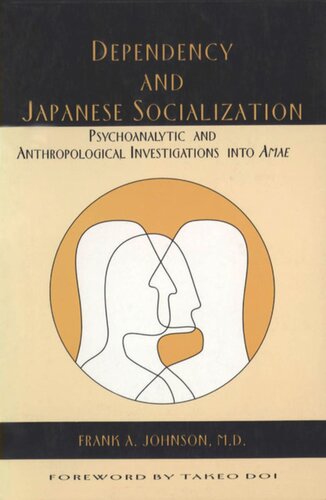

Most ebook files are in PDF format, so you can easily read them using various software such as Foxit Reader or directly on the Google Chrome browser.
Some ebook files are released by publishers in other formats such as .awz, .mobi, .epub, .fb2, etc. You may need to install specific software to read these formats on mobile/PC, such as Calibre.
Please read the tutorial at this link: https://ebookbell.com/faq
We offer FREE conversion to the popular formats you request; however, this may take some time. Therefore, right after payment, please email us, and we will try to provide the service as quickly as possible.
For some exceptional file formats or broken links (if any), please refrain from opening any disputes. Instead, email us first, and we will try to assist within a maximum of 6 hours.
EbookBell Team

0.0
0 reviews"Surprisingly readable and studded with nuggets of insight."
The Daily Yomiuri
"This insightful, well-written, fascinating book offers new understandings, not only of Japan, but also of American culture. It is essential for those in anthropology, psychology, sociology, and psychiatry who are interested in culture, as well as those in law and the business community who deal with Japan."
Paul Ekman, Ph.D.,Director, Human Interaction Laboratory, Langley Porter Institute, University of California, San Francisco
"[A] thoughtful cross-cultural study of development...His work can only enhance the still evolving psychoanalytic theory of preoedipal development as it is being derived mostly from psychoanalytic research on child-parent interaction in American families."
Calvin F. Settlage, M.D.
"Johnson's ambitious and exhaustive synthesis of anthropological and psychological treatments of dependency raises interesting questions. . . Johnson alerts the reader to issues of universalism and relativity and leads us to ask, 'What would psychoanalysis be like, if it had originated in Japan?'"
Merry I. White, Edwin O. Reischauer Institute of Japanese Studies, Harvard University
". . . Johnson's erudite and critical re-examination of human dependence succeeds to re-profile dependence meaningfully and revives our interest in this major aspect of human experience. Indeed, much food for thought for both psychoanalysts and anthropologists."
Henri Parens, M.D., Philadelphia Psychoanalytic Institute
Western ideologies traditionally emphasize the concepts of individualism, privacy, freedom, and independence, while the prevailing ethos relegates dependency to a disparaged status. In Japanese society, the divergence from these western ideals can be found in the concept of amae (perhaps best translated as indulgent dependency) which is part of the Japanese social fiber and pervades their experience.
For the Western reader, the concept of amae is somewhat alien and unfamiliar, but in order to understand the Japanese fully, it is essential to acquire a familiarity with the intensity that accompanies interdependent affiliations within their culture. To place amae in the proper context, Johnson critically examines the western attitudes toward dependency from the perspectives of psychoanalysis, psychiatry, developmental psychology, and anthropology. Johnson traces the development of the concept and uses of the term dependency in academic and developmental psychology in the West, including its recent eclipse by more operationally useful terms attachment and interdependency.
This timely books makes use of the work of Japanese psychiatrist Takeo Doi, whose book The Anatomy of Dependence introduced the concept of amae to the West. Johnson goes on to illuminate the collective manner in which Japanese think and behave which is central to their socialization and educational practices, especially as seen in the stunning success of Japanese trading practices during the past twenty years. A major emphasis is placed upon the positive aspects of amae, which are compared and contrasted with attitudes toward dependency seen among other nationalities, cultures, and groups in both Western and Asian societies.
Complete with a glossary of Japanese terms, Dependency and Japanese Socialization provides a comprehensive investigation into Japanese behavior.